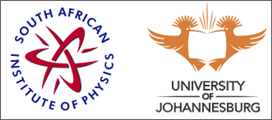Speaker
Level for award<br> (Hons, MSc, <br> PhD)?
PhD
Apply to be<br> considered for a student <br> award (Yes / No)?
Yes
Would you like to <br> submit a short paper <br> for the Conference <br> Proceedings (Yes / No)?
Yes
Abstract content <br> (Max 300 words)<br><a href="http://events.saip.org.za/getFile.py/access?resId=0&materialId=0&confId=34" target="_blank">Formatting &<br>Special chars</a>
Neuroscience and quantum physics have a central feature in common. Both disciplines study objects that largely remain a mystery to scientists. While a century after the discovery of quantum theory, physicists still struggle to interpret their quantum objects' counterintuitive behaviour, biologists are not even close to understanding the mechanisms underlying the remarkable performance of our brain.
The research field of Quantum Neural Networks (QNNs) combines both mysteries' by investigating how established models of neural networks can be formulated in the language of quantum theory. Far away from the rather esoteric discourses of aquantum brain', QNN models first and foremost aim at developing efficient algorithms to run on future realisations of quantum computers. QNNs thereby promise to provide a substantial speed-up or increased memory capacity relative to classical neural networks.
However, beyond questions of powerful computing technology, a success in the yet relatively small field of QNN research could give a first hint that our brain makes use of quantum mechanics to master its incredible tasks. In that sense, QNN research can be seen as a subdiscipline of the `dawn' of quantum biology which evaluates the question of how nature employs quantum effects in macroscopic (i.e. hot and dense) environments to optimise its processes.
This presentation intends to give an introduction into Quantum Neural Networks research and to access the question of the potential of our brain to use quantum computing algorithms.
Main supervisor (name and email)<br>and his / her institution
Prof. Francesco Petruccione, Quantum Research Group, School of Chemistry and Physics, UKZN

